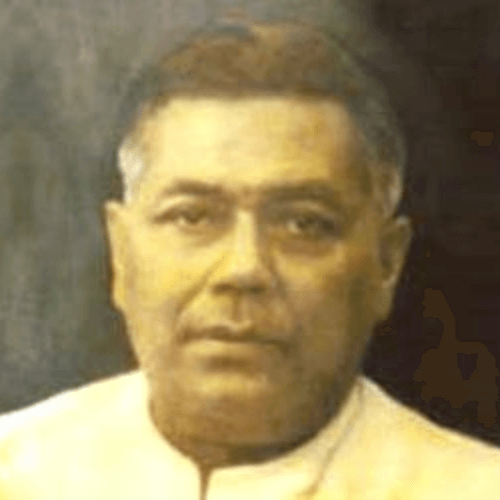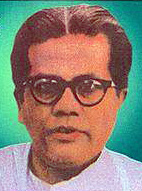Early Life and Family Background
Gopinath Bordoloi, a prominent leader in India’s independence movement and the first Chief Minister of Assam, was born on June 6, 1890, in Raha, Assam. His father, Budheswar Bordoloi, worked in the government’s medical service in a junior position, while his mother, Praneswari Devi, passed away when he was just 12 years old. After losing his mother, Gopinath was raised by his eldest sister, Shashikala Devi. His family originally hailed from Uttar Pradesh and belonged to the Brahmin Daivajna caste, known for their knowledge in astrology. In 1910, he married Surabala Devi from North Guwahati, a woman from an enlightened family.
Educational Journey
Gopinath Bordoloi was an exceptional student. He passed his matriculation in 1907 and enrolled at Cotton College, where he completed his Intermediate Arts (IA), now known as Higher Secondary, in first division in 1909. He then moved to Kolkata and joined the renowned Scottish Church College, graduating in 1911. His academic excellence continued as he pursued a Master’s degree from Calcutta University, successfully completing it in 1914. Despite studying law for three years, he returned to Guwahati before taking the final examination. Later, at the request of Tarun Ram Phukan, he briefly served as the Headmaster of Sonaram High School before resuming his law studies. In 1917, he passed the law examination and began practicing law in Guwahati.
Entry into Politics and Struggle for Independence
During Gopinath Bordoloi’s time, the Assam Association was the only major political organization representing the region. However, in 1922, Assam Congress was formed as a branch of the Indian National Congress. That same year, he joined the Congress as a volunteer, marking the beginning of his political career. His active involvement in the Non-Cooperation Movement led to his arrest in 1922, and he was jailed for one year. When the movement was called off after the Chauri Chaura incident, he returned to his legal practice.
From 1930 to 1933, he distanced himself from active politics and focused on social work. He became a member of the Guwahati Municipal Board and Local Board, where he actively advocated for a separate university and high court for Assam. His dedication to Assam’s progress and well-being earned him respect and recognition.
Leadership in Assam and Fight Against Communal Division
In the 1930s, Gopinath Bordoloi rose through the ranks of the Congress Party and emerged as Assam’s most influential leader. His greatest challenge came when Bengal’s Muslim League leaders sought to merge Assam into a Muslim-majority Pakistan. Bordoloi fiercely opposed this move, organizing protests and engaging in negotiations with British officials. His efforts ensured Assam remained a part of India and prevented communal violence in the region. His leadership played a crucial role in maintaining the territorial integrity of Assam within India.
Post-Independence Contributions
After India gained independence in 1947, Gopinath Bordoloi worked closely with Sardar Vallabhbhai Patel to secure Assam from external threats, particularly Communist China and East Pakistan. He also played a key role in rehabilitating millions of refugees who fled East Pakistan due to widespread violence and persecution during partition. His policies laid the foundation for communal harmony, democracy, and stability in Assam, contributing to its progress until the 1971 Bangladesh Liberation War.
Personality and Lifestyle
Gopinath Bordoloi was a tall, elegant, and handsome man who had a strong presence. Despite his simple lifestyle, he had a regal aura. He always wore Khadi, reflecting his commitment to Gandhian principles. Known for his humility and soft-spoken nature, he had a deep spiritual inclination and was particularly influenced by the Bhagavad Gita. A talented singer, he often sang Vaishnava devotional songs, adding another dimension to his multifaceted personality.
Honors and Legacy
Recognizing his selfless service to Assam and its people, the then Governor of Assam, Jayram Das Doulatram, honored him with the title “Lokapriya,” meaning “loved by all.” His contributions continue to be celebrated through various institutions named in his honor, ensuring that future generations remember his sacrifices and leadership.
Even after his passing on August 5, 1950, his legacy remains intact. In recognition of his immense contributions, he was posthumously awarded India’s highest civilian honor, the Bharat Ratna, in 1999. Additionally, Guwahati International Airport was renamed Lokpriya Gopinath Bordoloi International Airport to pay tribute to his remarkable achievements.
Conclusion
Gopinath Bordoloi was more than just a political leader; he was a visionary who shaped modern Assam. His relentless efforts to protect Assam’s identity, secure its borders, and promote harmony set him apart as one of India’s greatest statesmen. His dedication, courage, and love for his people continue to inspire generations. His life story is a testament to the power of selfless service, making him an eternal symbol of leadership and sacrifice in Indian history.
FAQ’s:
Q 1. Who was Gopinath Bordoloi?
Gopinath Bordoloi was a freedom fighter and the first Chief Minister of Assam. He played a major role in keeping Assam a part of India during the partition and worked tirelessly for the development of the state. His dedication to the people earned him the title “Lokapriya,” meaning “loved by all.”
Q 2. Where was Gopinath Bordoloi born?
He was born on June 6, 1890, in Raha, Assam. His father, Budheswar Bordoloi, worked in the government medical service, and his mother, Praneswari Devi, passed away when he was just 12 years old.
Q 3. What role did Gopinath Bordoloi play in India’s freedom movement?
He actively participated in the Non-Cooperation Movement and was jailed for one year in 1922. He later worked to protect Assam from being included in Pakistan during partition, ensuring its safety and stability as part of India.
Q 4. Why is Gopinath Bordoloi called ‘Lokapriya’?
He was given the title “Lokapriya” by the then-Governor of Assam, Jayram Das Doulatram, due to his selfless service and commitment to Assam and its people. His leadership and vision made him widely respected and loved.
Q 5. What was Gopinath Bordoloi’s contribution after independence?
After independence, he worked closely with Sardar Vallabhbhai Patel to secure Assam from threats posed by Communist China and East Pakistan. He also helped in the rehabilitation of refugees and played a key role in maintaining peace and communal harmony in the state.
Q 6. What were Gopinath Bordoloi’s educational achievements?
He completed his matriculation in 1907 and pursued higher education at Cotton College. He later graduated from Scottish Church College in Kolkata and completed his M.A. from Calcutta University in 1914. He also studied law and became a practicing lawyer in Guwahati.
Q 7. What were some of the key social contributions of Gopinath Bordoloi?
Apart from politics, he worked for the betterment of Assam by demanding a separate university and a high court for the state. He also contributed to the upliftment of education and social welfare.
Q 8. When and how did Gopinath Bordoloi pass away?
He passed away on August 5, 1950. His death was a great loss to Assam and the nation, as he was a visionary leader who worked for the betterment of his people till his last days.
Q 9. What awards and honors were given to Gopinath Bordoloi?
He was posthumously awarded the Bharat Ratna, India’s highest civilian award, in 1999. Additionally, the Guwahati International Airport was named after him as “Lokapriya Gopinath Bordoloi International Airport.”
Q 10. Why is Gopinath Bordoloi still remembered today?
He is remembered for his dedication to Assam and India, his fight against communal division, and his efforts to develop the state. His legacy continues to inspire leaders and citizens alike to work for unity, peace, and progress.












